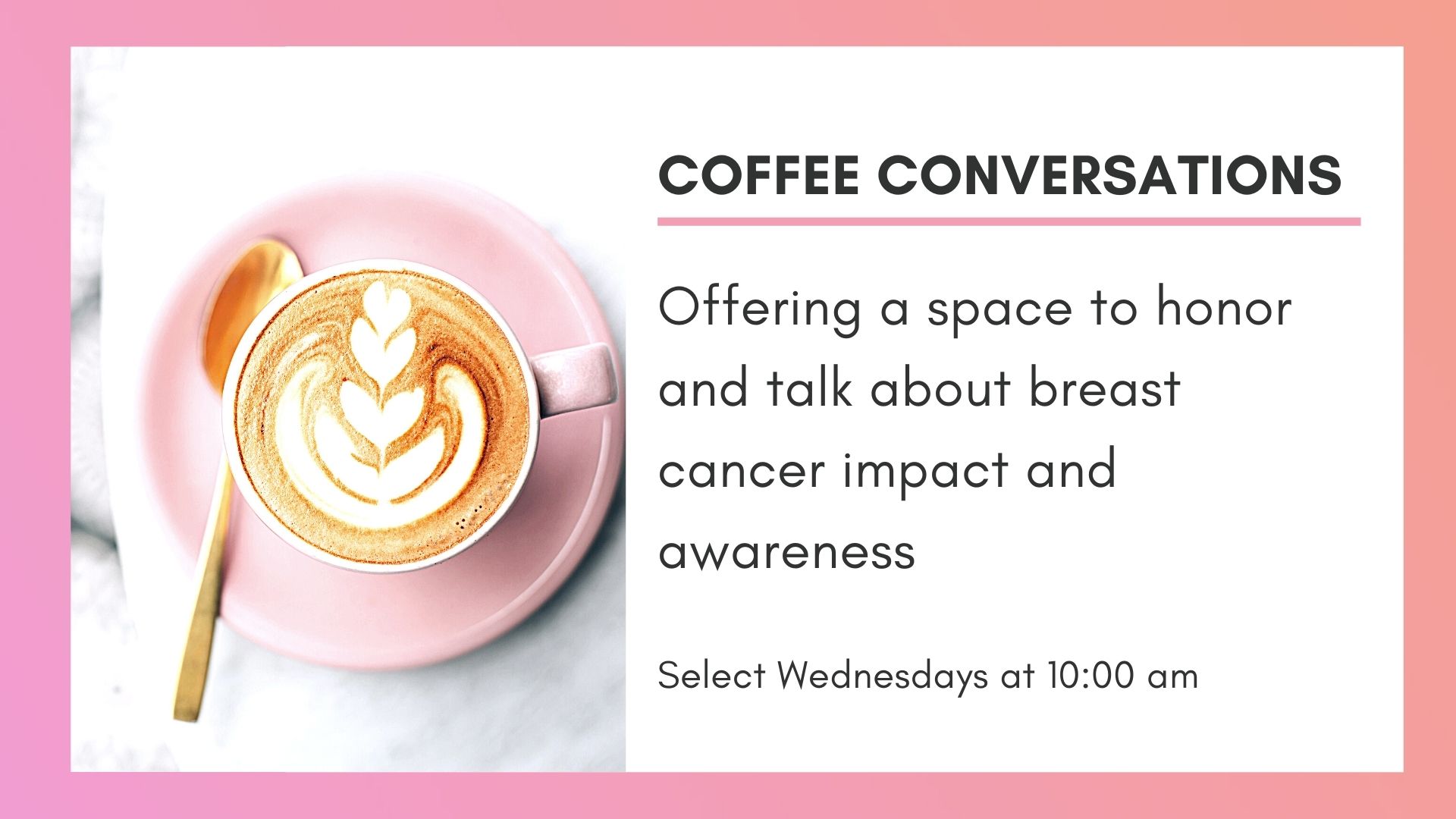If you missed our special Coffee Conversation on Grief & the Holidays never fear! We’ve summarized the conversation below because, while it is organized around the holidays, there are plenty of useful tips for year-round application. And, if you’d like to view the entire conversation, click here and head to our YouTube channel to check it and many others out!
“That is the work. To hold both. Denying neither – letting it come when it does. We have loss and we have hope both at the same time. They remain stunningly overlapping, and you don’t have to release either.” – Jen Hatmaker
Emily Wells, MSW, LICSW is a Clinical Social Worker at Oasis Counseling for Women and Children with previous experience in the medical setting.
What is grief? Do you ever get over it?
Google defines “grief” as deep sorrow or profound sadness. The Mayo Clinic offers a broader definition: “Grief is a strong, sometimes overwhelming emotion for people, regardless of whether their sadness stems from the loss of a loved one or from a diagnosis that they or someone they love have received.[1]”
However you define it, grief is a natural process. While grief is universal, Emily explains that the experience is highly individual. The response to something that causes grief, such as a breast cancer diagnosis, will change over time. The process of experiencing grief is circular, so while the things that cause pain may change, the pain still exists. As Emily describes it, grief is almost like pushing on a bruise.
You might ask “When will I be done crying or feeling angry?” That answer is different for everyone. You might have good days or good months. Then an event may come around – like a holiday – and the “I wish” part of grief will press in on that wound again.
Why is it so important to acknowledge those emotions when you are experiencing grief?
Acknowledgment of grief and feelings of sadness push us to accept the new reality after change or a loss. Two things can be true at the same time. It is possible to have a diagnosis or have lost someone and have other elements of life that are joyful. You can grieve and still have beautiful things to look forward to.
As Emily reiterates, it is possible to move forward and experience grief at the same time.
Is it common to experience grief during the holidays?
The holidays are a time of celebration but also a time of reflection. We reflect on changes of the years. There may be apprehension with navigating new life circumstances, seeing new family members, etc. The holidays, while often filled with annual traditions, also can be a natural time to reflect and acknowledge change.
How do you grieve loss of sense of self?
With a diagnosis, you may experience a loss of sense of self or a loss of identity at work or at home. You may also feel a loss of femininity. For many, it may be difficult to go from being the person who cared for others to being the person who must be cared for. It is important to acknowledge that frustration and pain. Grieve the expectations of roles lost or changed.
What tips would you have for someone with a diagnosis of breast cancer who wants to feel “normal”? What are some practical tips for holiday grief?
Focus on what you can control. Set appropriate expectations and choose comfortable things within your current capabilities. If you enjoy preparing food for your family, find some ways to be part of the cooking. Perhaps you can prepare some desserts ahead of time or take the time to teach someone in your family how to make a treasured recipe. This is a good time to examine and change your expectations. What does your new normal look like?
Through the holidays, make sure you have something to look forward to, even if that something is different than it used to be. Try to spend time with loved ones and focus on doing the next right thing for yourself. Maybe you cannot do it all, but with a change of perspective, you can celebrate what you are able to do.
What are some tips for those supporting someone with breast cancer?
Acknowledge your loved one. Offer to meet tangible needs and be specific with those needs. Sit with them so they are not alone.
Not knowing what to say is ok. Being available is still helpful and supportive of your loved one.
If you do not know what to say, you can start with this:
I am here. I hear you. I understand. I care.
Remember that while you can understand that a person is grieving, you cannot fully understand their experience. Please be careful when trying to relate. This can be helpful when shared appropriately, but we never know exactly how someone else is feeling.
With the holidays and the COVID-19 pandemic in mind, what are some specific tips for those with a new diagnosis who are not able to be with family?
Take time to change your expectations. Set up something manageable that you can look forward to over the holidays, even if it is something small. What may feel small now may make the best memories. Start a new tradition that you can carry on in the following years. Find a way to respect and honor a diagnosis or a missing person. A major change is a natural time to start something new. If you are unable to be with family, make efforts to interact virtually!
Final Thoughts
Emily left us with this final quote on loss and hope by author Jen Hatmaker:
“That is the work. To hold both. Denying neither – letting it come when it does. We have loss, and we have hope both at the same time. They remain stunningly overlapping, and you don’t have to release either.”
[1] Mayo Clinic: https://www.mayoclinic.org/patient-visitor-guide/support-groups/what-is-grief
